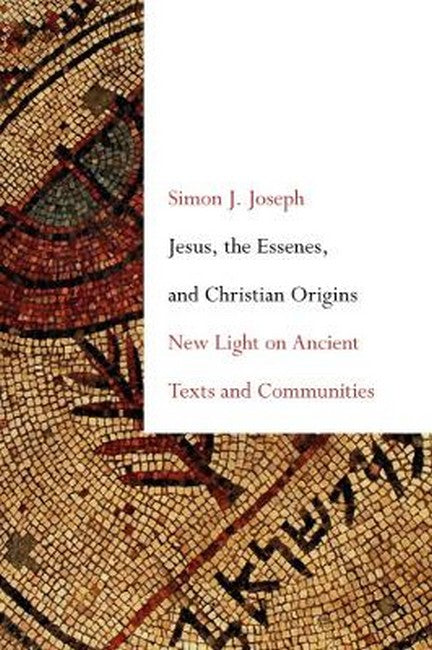Simon J. Joseph is Continuing Lecturer in the Interdepartmental Program for the Study of Religion at UCLA. He is the author of over thirty peer reviewed articles, and numerous books, including, Jesus, Q, and the Dead Sea Scrolls: A Judaic Approach to Q, The Nonviolent Messiah: Jesus, Q, and the Enochic Tradition, and Jesus and the Temple: The Crucifixion in Its Jewish Context.
Request Academic Copy
Please copy the ISBN for submitting review copy form
Description
...judicious, clearly argued and well documented. --David Wenham "Journal for the Study of the New Testament" ...A stimulating dialogue partner for historical Jesus scholars, especially regarding Jesus's halakhic teaching. --Cecilia Wassen "Dead Sea Discoveries" [Jesus, the Essenes, and Christian Origins] is well written and solidly researched and deserves to have a voice in the continuing discussion --Michael O. Wise "Journal of the Evangelical Theological Society" From the outset the discovery of the Dead Sea Scrolls in 1948 has led to a variety of hypotheses about the possible relationship of the Essenes, a Jewish sect that populated Qumran, the site where the scrolls were found, to Jesus and early Christianity. In this marvelous work Simon Joseph... offers a detailed, well-researched, and eminently balanced assessment of this intriguing potential relationship. --Donald Senior "The Bible Today" The question of the relationship between Jesus and the Essenes has, as Simon Joseph notes, 'fascinated biblical scholars and the general public for over three hundred years' (163), and more so since the discovery of the Judean Desert Scrolls in 1947. In the time that has elapsed since their publication, what has changed in ways that affect this inquiry is not the data but rather scholars' approach to its interpretation. Joseph offers a concise survey of both the evidence and scholarship concerning it and raises a forceful argument in favor of an actual connection and familiarity between Jesus and the Essenes. --Aryeh Amihay "Reading Religion" With his precise study of the texts and his methodological prudence, Simon Jospeh helps his readers enter this field of research. --Mark Rastoin "Recherches de Science Religieuse"

